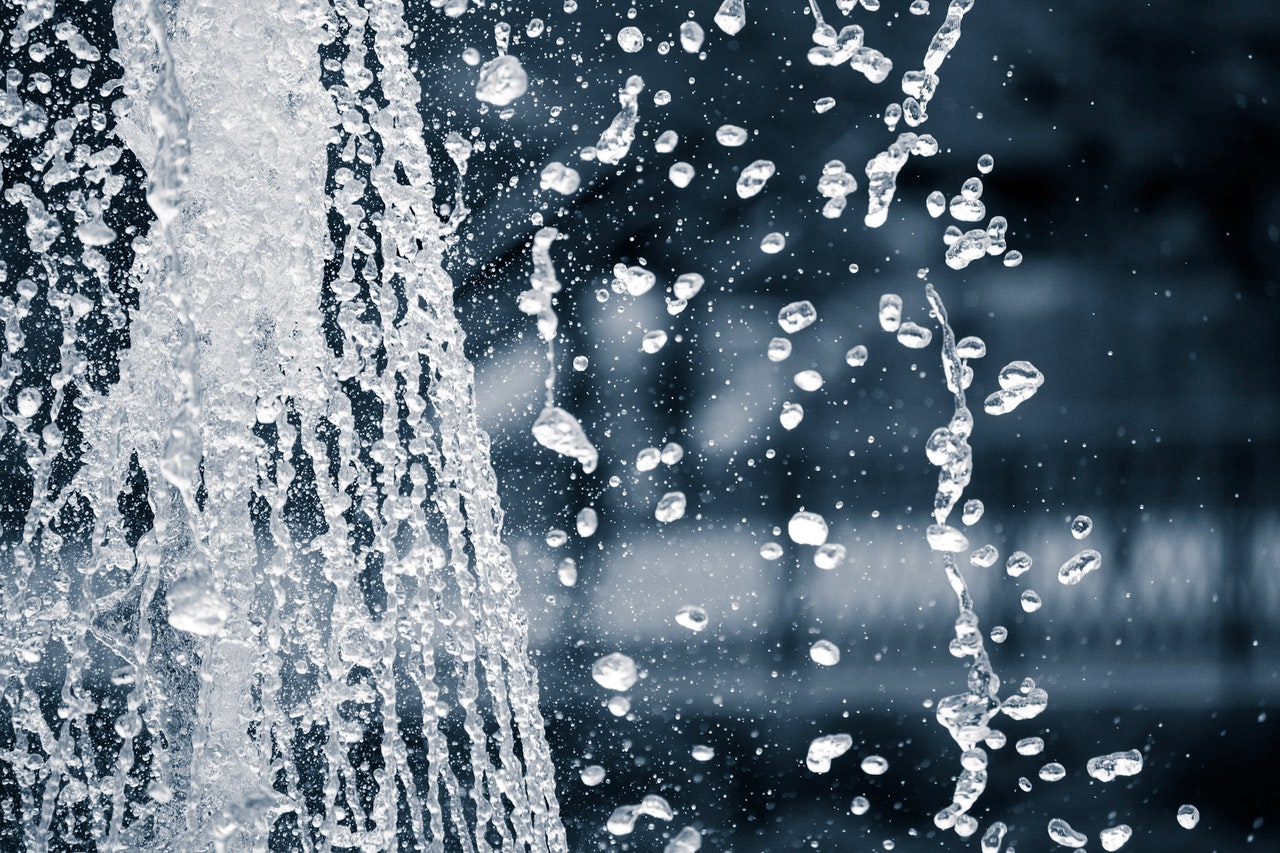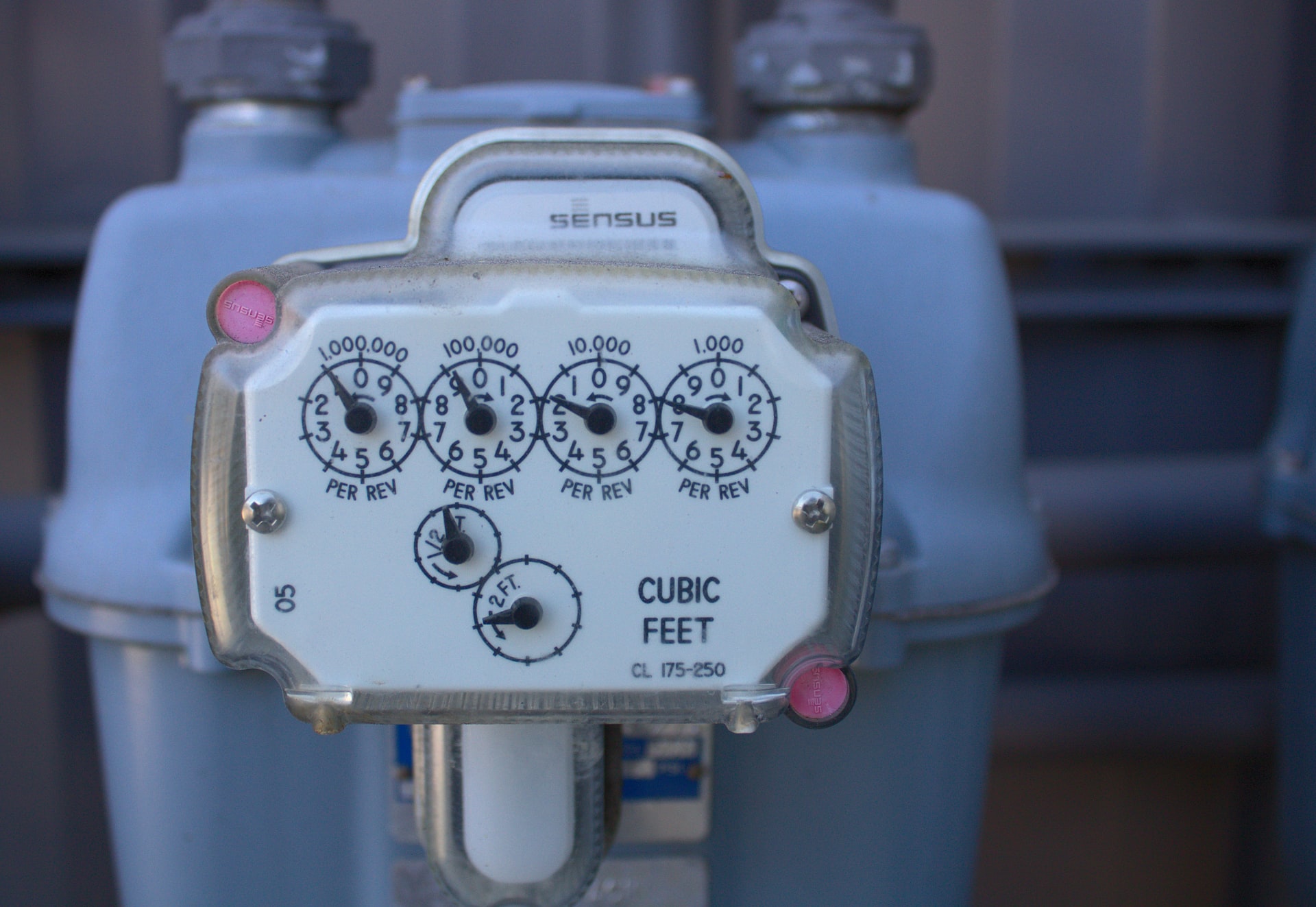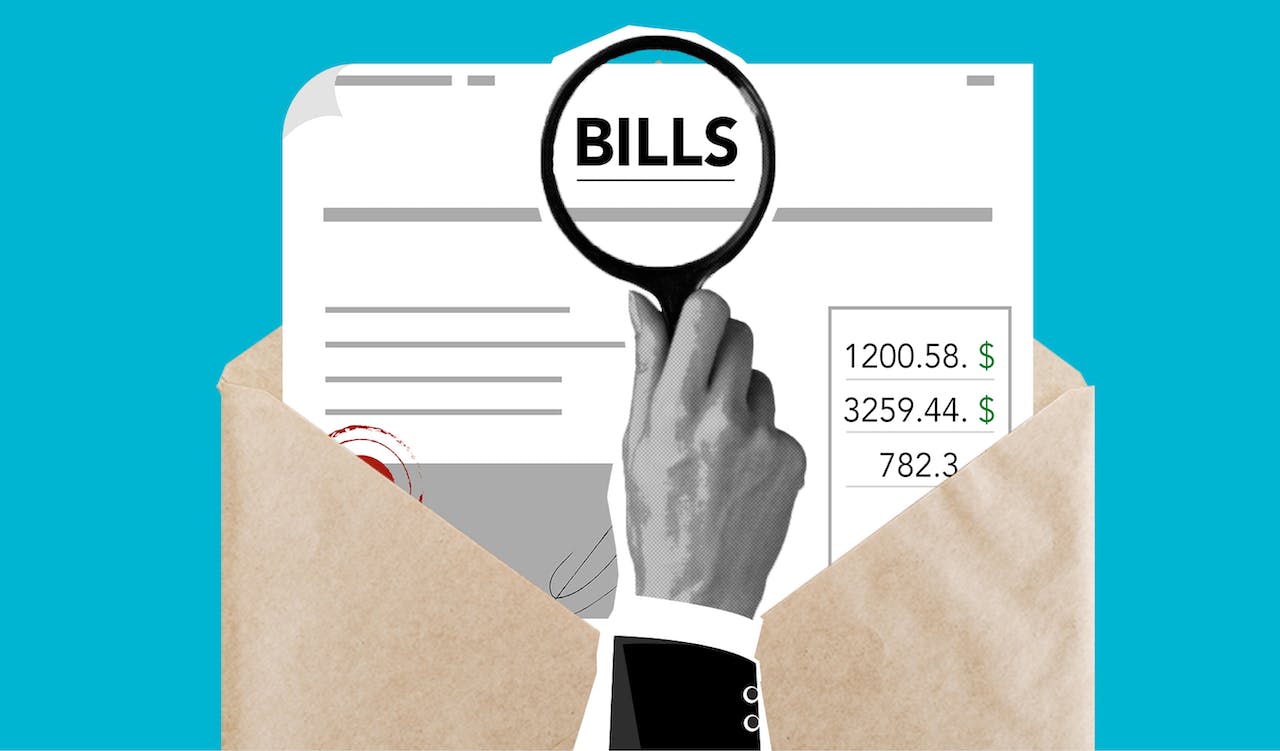Utilities are essential services that we all need to be productive and comfortable in our daily lives. Electricity, water, gas, internet, streaming services, and waste removal are the pillars that keep our worlds moving – but that doesn’t mean there isn’t anything you can do to reduce those costs.
The average American household pays $370.16 in utilities per month. This number will be lower if you’re a single person living in an apartment than a family of four living in a larger detached home. Similarly, if you live in an older home with less efficient insulation, appliances, and windows, your costs could be higher. You’ll also find some variations between states, with Connecticut coming in highest at an average of $428 per month and New Mexico the most affordable at $288 per month for utilities.
While it might not be practical for you to choose where you live based on utility costs, there are many things you can do to bring down how much you spend every month wherever you live.
Table of contents
- Energy-saving myths
- How to save money on your internet and cell phone bill
- How to save money on your electric bill
- How to save money on your gas bill
- How to save money on your water bill
- How to save money on trash removal services
Energy-Saving Myths
When reducing utility costs, numerous misconceptions might not lead to significant savings. One common myth is that leaving the lights on uses less energy than turning them on and off frequently. In reality, the small surge of power when turning on lights is negligible compared to the energy wasted by keeping them on unnecessarily. Another prevalent misconception is that keeping electronic devices plugged in always doesn’t consume power. Even when not in use, devices on standby mode can still draw a considerable amount of energy. Lastly, many people believe using space heaters is a more efficient way to warm specific areas than heating the entire home. However, space heaters can consume a significant amount of electricity and may need to be more cost-effective than central heating systems. It’s essential to be aware of these energy-saving myths and focus on proven strategies for reducing utility bills.
How to save money on your internet and cell phone bill

Use a WiFi extender at home
WiFi extenders, or boosters, are neat little gadgets that amplify your current WiFi signal, making it cover more area.
If you have a larger home or areas where your WiFi cuts out, resulting in you moving over to cellular data when you’re using your phone, an extender can help keep you on WiFi and reduce data charges.
Buy your own modem and router
Your internet provider may try to sell you a modem and router as a part of your internet package, but they don’t tell you that you can provide your own hardware (in most cases). You can save by buying your own new, or even more if you can find used ones that still meet current security standards.
Reduce your internet speed
Internet providers are definitely guilting of convincing us that we all need the fastest, snazziest internet they have to offer when in reality, we’re probably fine with a tier lower. Unless you’re a heavy gamer or have large files to upload or download all the time, you can get away with a slower internet speed.
Negotiate with your providers
Most internet and cell phone providers have customer retention departments with a huge amount of discretion in what deals they can give you. If you call and ask, they’ll likely have a discount they can provide you or bonus features they’ll add to your plan for free.
Bundle your services
It almost always works in your favor to bundle your services together. Cell phone and internet providers want you to use them for all of your services, so they incentivize customers with deep discounts for bundling.
Sign up for automated payments
We’ve all felt the pain of a late payment fee! Avoid this by signing up for automatic payments and never have to cringe when you see that late fee come out of your bank account again.
How to save money on your electric bill

You can reduce your monthly electric bill and be easier on the environment. High electricity consumption is costly to the environment, requiring more power generation and non-renewable resources. So, an overall reduction of your electrical usage is a win-win. There are some devices like LED lights that help lower energy consumption. You can find the ones that suit better in your home.
Perform an energy audit
An energy audit also called an energy assessment, is a way to pinpoint areas in your home that are the least energy efficient. Home energy professionals do these audits, and the Department of Energy also provides a DIY home energy audit so that homeowners can gain a picture of their energy consumption without the added cost of hiring a professional.
While the pros will have much more accurate means of assessing your home’s energy efficiency, like infrared cameras, moisture meters, and gas leak detectors, the DIY option is a great way to get started on your own. You might not have the fancy tools, but you can get an idea of where you can improve your home’s energy use.
Reduce phantom energy
Phantom energy is one of the most common ways that homeowners and renters pay way more for their electrical bills than they need to. Phantom energy refers to the continual electrical draw that any appliance has when plugged in – even when powered off.
Your desktop computer is likely the worst offender for phantom energy usage, with video game consoles coming in right behind them. While other small appliances have much smaller draws on electricity, it adds up quickly when they’re all combined. Consider how many electrical appliances you use throughout a single day at home. Many of us begin our days by brushing our teeth with an electric toothbrush, using hair tools like curling irons, making coffee with a drip coffee maker or espresso machine, and toasting a bagel. That’s five appliances that most likely stay plugged in all the time, and we’ve just finished breakfast!
Start energy-saving habits
Saving energy to reduce your electrical bill comes down to a few easy-to-implement habits that won’t disrupt your daily routine but will impact your utility bill each month.
- Turn your furnace down at night. If you’re not already in this habit, try setting an alarm or reminder on your phone to turn the heat down before you head to bed.
- Power down your desktop computer when you’re not using it. It can be easy to get into the habit of letting your computer go to sleep and not powering it off, but this is a huge source of a needless electrical draw.
- Unplug small appliances each time you use them. Most of us are so used to leaving these appliances plugged in that this one can be tough to remember without a prompt. While you’re getting into the habit, write yourself a Post-It note and stick it on your most-used appliances, or set a phone reminder to unplug them when you’re done with them.
Avoid common “mistakes” that increase your energy bill
There are a few common pitfalls that many of us make that inadvertently increase our electricity bills. Run through the list below and see where you can improve so that your monthly bill is a bit less breathtaking.
- Washing clothes in hot water. Unless you have a specific reason for washing in hot water, you can save on all the energy it takes to heat your water by washing in cold water. Many detergent options are specifically made for washing in cold water, so your clothes won’t be any less clean!
- Not replacing your furnace’s air filter on time. When your air filters get clogged up, your furnace has to work extra hard. This puts more wear and tear on your furnace and bumps your electrical bill up.
- Always using your dryer to dry clothes. Your dryer and washing machine are significant electricity draws, so the less you can use them, the better your bank account.
Have an electrical safety inspection
An electrical safety inspection is a great way to make your home safer and more energy-efficient. During this type of inspection, an electrician will look over your home for any potential areas of danger or electricity loss. If there are any immediate dangers, they’ll be able to fix those before they leave your home and make recommendations on how you can improve your home’s electrical use overall.
Any certified electrician in your area can do this type of inspection – you do not need a licensed home inspector.
When you get an electrical safety inspection, you can expect that your friendly neighborhood electrician will come over and check out your wiring, plug sockets, light fixtures, fuse boxes and extractor fans.
They’ll let you know right away if there’s anything that needs fixing on the spot, like faulty wiring that could cause a fire, and if there are areas that you can improve on to reduce your electrical consumption.
When do you need one?
- When you move into a new home, it’s a great practice to have an electrical safety inspection done. You never know what’s been done before you moved in or if any work has been done by an experienced professional, so it’s a good idea to have it checked over.
- If you’ve owned your home for 10+ years and haven’t had an inspection done since you moved in. You never know what can change over that time — stay safe and have an do an inspection.
- If you’ve had any issues with flooding or damage that could have impacted your electrical system. Water and electricity don’t mix!
Benefits
First and foremost, peace of mind. You’ll know that you’ve had a pro look over your home and verify that it’s safe and energy-efficient. You’ll get tips on using less electricity and reducing your monthly bill, which will benefit the environment.
How to save money on your gas bill

Weatherproof your house
Weatherproofing might be the most important thing you can do to save money on your gas bill! Weatherproofing your home with items like insulated curtains and weather stripping on doors and windows can help you save tons.
Use a smart thermostat
Smart thermostats are becoming more common. They’re a hero when it comes to your gas furnace. Smart thermostats learn your heating and cooling preferences and adjust to match your location, schedule, and selections throughout the day. Instead of turning the heat up and down at night, your smart thermostat will respond throughout the day, saving you from heating your home when you don’t need to.
Smart thermostats are getting more affordable, with base units easily found for under $200.
Use space heaters
If a smart thermostat isn’t in the cards for you, or even if you do have one, using space heaters can be a lifesaver on your gas bill. If you work from home during the day, consider how little of your home you use while you’re at work. A quick run to the kitchen for coffee breaks and lunch, but other than that, you’re likely tucked away at your desk where a space heater could be keeping your tootsies warm instead of your gas furnace heating your whole house.
Unless you live in a warm state year-round, you likely notice a spike in your heating bill over the winter months. While some of this is just a given because we need to keep ourselves warm and our water piper thawed, you can definitely do some easy things to reduce your anxiety-inducing winter gas bill.
Instead of turning your furnace up all day, invest in a heating pad or heated blanket. You’ll stay warm while you’re working or relaxing on the couch, and while electric blankets do use a small amount of electricity, it’s not nearly as much as turning up the heat in your house by another few degrees.
How to save money on your water bill

Using less water at home reduces your water bill itself and will have a trickle-down effect on your electrical and gas use. When you use less water, you also heat less water! You also use less electricity to run appliances like your washer and dryer.
Reducing your water consumption has a positive effect on the environment, too. We know that much of the country is facing potential water shortages, so being conscientious about our water use wherever possible is environmentally and fiscally responsible!
Install low flow toilets
Older model toilets are one of the worst culprits for overusing water in our homes. Large toilet tanks on older toilets are much less efficient than newer ones. Now we can ensure waste is flushed and disposed of with much less water than before, so upgrading older toilets can make a big difference.
Take shorter showers and install efficient shower heads
We’ve all been guilty of standing in the shower, relaxing until the water starts to run cold. While that’s a nice indulgence once in a while, doing it on the regular could be contributing to a higher than necessary utility bill.
Water-efficient showerheads are made so that you don’t lose water pressure while using far less water than older showerheads. They’re inexpensive to buy and easy to find!
Fix leaky faucets and toilets
A leaky faucet might seem like a nuisance, but that water loss does add up over weeks and months, so get that drippy faucet fixed on the double! If you don’t want to call a plumber just for that, head over to YouTube, where the friendly DIY community will be happy to teach you how to fix your own faucet.
New leaks are always occurring, this includes toilet leaks. Silent toilet leaks can increase your water bill dramatically. One high-volume toilet leak can tack on an extra $10,000+ on an annual bill. Installing toilet leak prevention devices may help you prevent these leaks and save both, money and water.
Use a dishwasher (correctly)!
Using a dishwasher can help you reduce water use if you’re a frequent one-dish-at-a-time washer. Running water to clean one or two dishes is far less efficient than saving up a whole load if you have an ENERGY STAR-rated dishwasher.
Run full loads of laundry
Make sure you hold off doing your laundry until you have a full load. This saves on water overall, and it will also help bring down your electricity bill.
How to save money on trash removal services

Limit the number of pickups
Trash pickup varies a lot based on where you live, but many municipalities will offer different service tiers. If you can, reduce your number of pickups to as few as possible to reduce your fees.
Compost everything you can
Composting will help you reduce your garbage pickups, and it’s great for the environment, too! If you live in an apartment and don’t have the facility to compost outside, see if there’s a community garden close to you where you could donate your compost.
Reduce your overall trash
Being aware of how things you purchase are packaged and making an effort to buy something with minimal or compostable packaging can dramatically reduce the amount of trash you have to dispose of — plus, you’re doing the earth a favor in the process.

Unless you go entirely off-grid, you’ll likely always have some utility bills to pay each month. Nonetheless, follow the tips from this article. You’ll find that you can have a noticeable impact on reducing your utility bill overall while doing your part for the environment at the same time.




